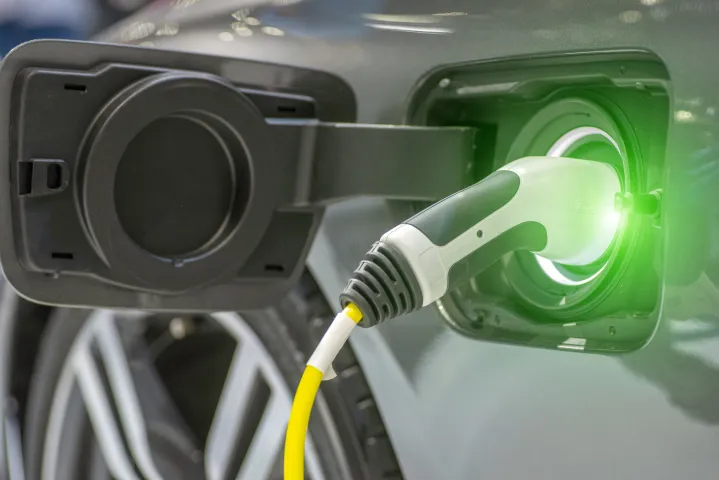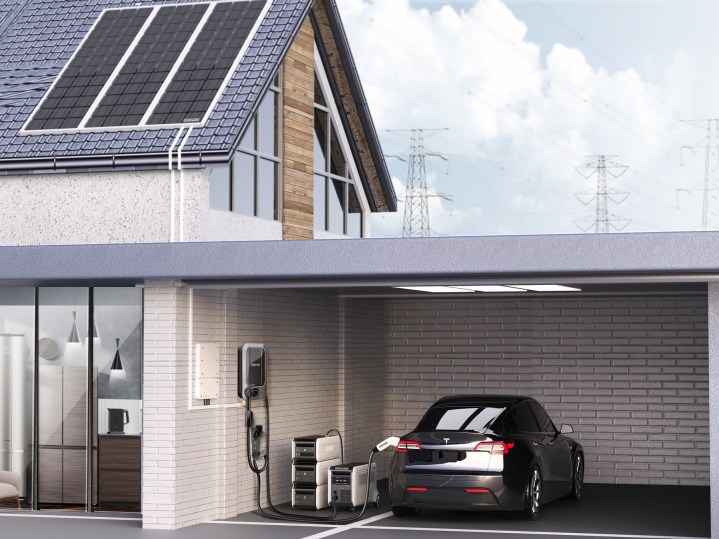One of many major promises of the electric car is the truth that it’ll prevent cash, a minimum of in the case of gas prices. That’s true greater than ever with the rise of gasoline costs in latest occasions, making it fairly simple to spend $100 or extra on a tank, relying in your automobile mannequin. However maybe one of many main misconceptions with electrical automobiles is the truth that they’re not free. That’s proper, you’ll nonetheless must pay to cost your automobile.
However how a lot, precisely? Effectively, it varies radically. Issues like the placement of your charger, the automobile you’re driving, and extra can all impression how a lot it prices to cost a automobile.
Usually talking, you must count on to pay between $5 and $30 for a full automobile cost. You’ll be nearer to the $5 mark when you’ve got a automobile with a smaller battery and occur to cost at a less expensive location. And it’ll value you extra when you’ve got a automobile with a big battery and cost at a quick charger.
The price of charging mainly boils right down to the next equation: the variety of kilowatt-hours (kWh) the battery in your automobile is multiplied by the value per kilowatt-hour you cost at. Public charging stations ought to present a value earlier than you begin charging.
To get a extra correct take a look at how a lot you’ll cost, let’s dive in and do some math.
Price of charging an electrical automobile at residence
The most affordable technique to cost an electrical automobile is by doing it at residence. Public charging corporations cost a premium to cowl issues like infrastructure prices and, in fact, to make a revenue. Other than the charger that probably got here along with your automobile (or a sooner one in the event you’re fancy), you don’t have these prices.

Calculating the price of charging at residence can get sophisticated due to the assorted prices of electrical energy. According to the U.S. Energy Information Administration, the typical retail value per kWh within the U.S. was 10.59 cents in 2021. That common varies radically relying on the state you’re in. For those who’re in Louisiana, you’ll pay 7.51 cents per kWh. On the different finish of the spectrum is Hawaii at 27.55 cents per kWh. We’re not going so as to add the problems of upper prices at completely different occasions of the day or 12 months.
Then you need to issue within the measurement of your automobile’s battery. Based on the Electric Vehicle Database, the typical measurement of an electrical automobile battery is 65.6kWh. That implies that, on common, within the U.S., it’ll value $6.94 to totally cost an electrical automobile at residence. On the costliest aspect of the spectrum, like proudly owning a Lucid Air Dream Version, with its huge 118kWh battery, and charging it in Hawaii, you can count on to pay $32.51.
These figures basically think about charging your automobile from 0% to 100% — so usually, you’ll solely spend just a few {dollars} at a time charging, say from 60% to 80%.
Price of charging an electrical automobile at a charging station
Charging your automobile at a public charging station is an entire completely different ballgame. Public charging corporations have invested some huge cash into their fast-charging tech, to not point out the prices of putting in stations, paying workers, and so forth. The consequence? You’ll pay rather more at charging stations.

Charging stations can cost at completely different charges. So-called Stage 1 chargers are most helpful in a single day, as they take as much as 24 hours to totally cost a automobile. Stage 2 chargers often ship rather less than 30 miles of cost per hour. Level 3 chargers, or DC quick chargers, can typically totally cost a automobile in underneath one hour.
Due to the huge variation in prices, it may be very laborious to slim down pricing. Electrify America (EA) is likely one of the extra fashionable charging networks within the U.S. and expenses $0.03 per minute for Stage 2 charging. Most of Electrify America’s chargers, nonetheless, are quick chargers that cost a per-kWh charge, irrespective of how briskly you cost at. In California, on the time of this writing, EA charged $0.43 per kWh for visitors and Electrify America Go members and $0.31 for Go+ members. So, in the event you’re a visitor, you’ll pay a mean of $28.21 for a full cost or $20.33 in the event you’re a Go+ member. You’ll must issue within the Go+ price of $4 monthly.
Charging an electrical automobile without cost
The very best and most constant technique to cost your electrical automobile in your day-to-day life is at residence, counting on public chargers for highway journeys and fast top-ups. However there are some methods to get free charging.
For starters, your employer might provide charging stations at your work, and people is perhaps free to entry. This can be a nice technique to top-up throughout your workday.

You’ll additionally discover free Stage 2 charging stations in lots of public parking heaps. For instance, at your native mall, there could also be a lot of Volta charging stations that allow you to cost when you store without cost. Grocery shops typically have these, too.
Your automobile’s producer could also be providing free charging for a restricted time, too. Tesla, for instance, provided free charging to Mannequin S and Model X customers who purchased their automobiles between 2012 and 2016. Sadly, it now not gives that. However different producers like Audi, BMW, Ford, and others typically provide a minimum of a 12 months of free charging at Electrify America or EVGo stations.
The final “free” technique to cost your electrical automobile is by not utilizing vitality from the grid. With photo voltaic panels and residential batteries, you could possibly keep away from shopping for electrical energy out of your native supplier. After all, that’s not likely free — you continue to must pay for photo voltaic panels and batteries. But when you have already got these arrange or already deliberate on doing so, charging your automobile utilizing them will add no extra value, assuming your system can deal with the extra pressure.
How less expensive is charging an electrical automobile in comparison with filling up a fuel tank?
It’s mainly unattainable to give you a precise determine to reply this query. Setting apart the truth that there are tons of variables when discussing electrical automobile charging, there are maybe much more associated to filling up a tank of fuel — like the truth that the value of fuel adjustments each single day. In different phrases, take the following few paragraphs with an enormous grain of salt. We’re going to speak averages, and it’s extremely unlikely that your figures would be the identical.

According to AAA, the typical value of fuel on November 7, the day that this was written, was $3.804 per gallon for normal unleaded gasoline. Most automobiles have a tank between 10 and 20 gallons, so let’s use 15 as a good common, contemplating the truth that we had been unable to seek out good knowledge concerning the precise common fuel tank measurement. That might make totally filling up your automobile value $57.06.
In different phrases, in the event you charged your automobile at residence, on common, it will value $50.12 much less to cost an electrical automobile in the event you did so at residence. For those who had been to cost at an Electrify America charging station as a visitor, it will nonetheless value $28.85 lower than filling up a mean tank of fuel. That’s round half the value.
The takeaway
Within the overwhelming majority of instances, you’ll pay much less to cost an electrical automobile than to refill a automobile with a tank of fuel. How a lot much less can range broadly, relying in your automobile mode, the place you cost, and extra. And that doesn’t even start to the touch on the truth that electrical automobiles are usually dearer to purchase than gas-powered ones. Now we have a whole article breaking down the total possession prices of EVs versus gas-powered cars, from upkeep to insurance coverage.
Editors’ Suggestions







